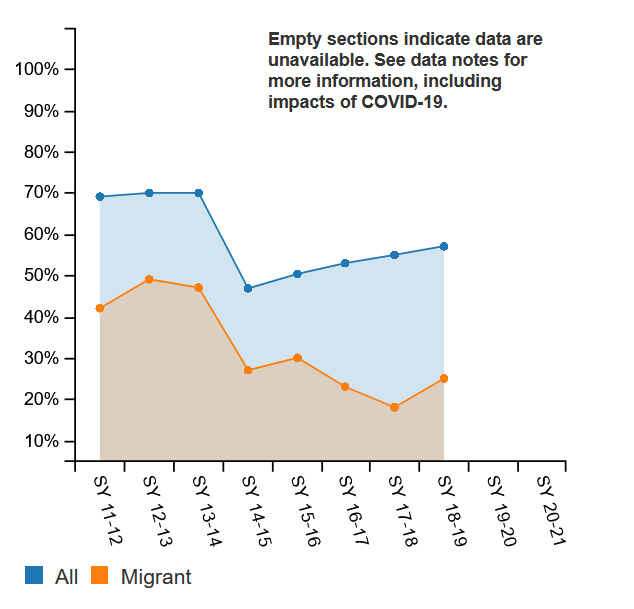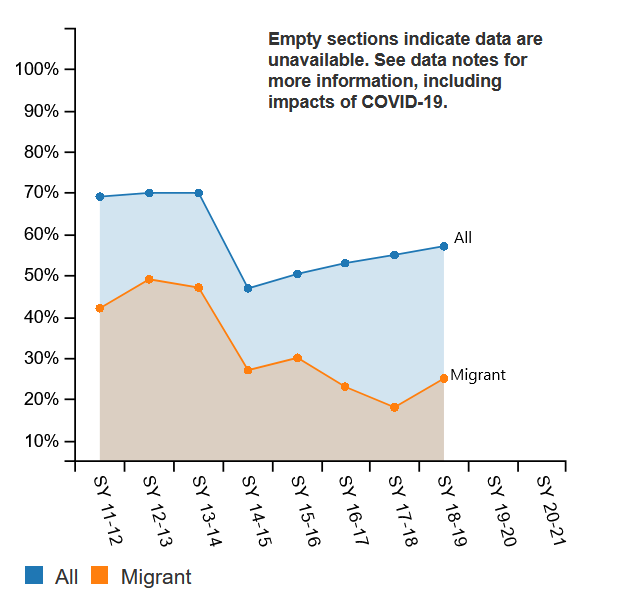Supporting Migrant Students
Office of Supplemental Educational Programs
The New Jersey Department of Education's (NJDOE) Migrant Education Program ensures that all migrant students reach challenging academic standards and graduate with a high school diploma. Migrant students already face challenges because they are constantly relocating from one place to another for work. Frequent moves, language barriers, and lack of resources make it difficult for these students to learn. Research shows that the worldwide closure of schools has deeply impacted the already underserved and disadvantaged migrant student population. Preparing educators with effective instructional strategies to meet the needs for all migrant students is one way to help address this issue. The learning doorway defines accelerated learning as a comprehensive, innovative, proven methodology that greatly increases our capacity to learn, problem-solve and create (Learning Doorway, 2009). According to the New Jersey Department of Education’s Learning Acceleration Guide, “the goal of learning acceleration extends beyond recovering the ground lost to COVID-19; it must be viewed as a long-term, comprehensive framework that anchors districts’ academic, social, and behavioral interventions to the common purpose of promoting global competitiveness for all students."
Promising Practices
1. Comprehensive Center Network Guide to Accelerate Learning
The Comprehensive Center Network Guide to Accelerate Learning (PDF) walks you through the process of what accelerated is and what it is not. It evolves into resources and strategies that are turn-key at the local district level. The guide concludes with exemplars from across the nation and insight on their approaches to recovery success.
2. Supporting Child and Student Social, Emotional, Behavioral, and Mental Health Needs
The Supporting Child and Student Social, Emotional, Behavioral, and Mental Health Needs (PDF) document highlights seven key challenges to providing school- or program-based mental health support across early childhood, K–12 schools, and higher education settings, and also presents seven corresponding recommendations.
3. Pandemic Learning Reveals the High-Quality Instructional Materials to Educator-Family-Student Partnerships
Expanding the required dimensions of “high-quality” instructional materials, this resource provides focuses on how to be educative for families, tech-enabled, and culturally responsive while creating systems and structures to improve upon learning experiences.(Fundamental 4: Pandemic Learning Reveals the Value of High-Quality Instructional Materials to Educator-Family-Student Partnerships)
Note for people using screen readers or text-to-speech tools: The alt text for the graph includes the graph type and a high-level summary. All data from the graphs is available through a link immediately after each graph.
Figures 1 and 2 show that the proficiency gap between all students and migratory students in Math and Reading/Language Arts continues to exist.


Source for Figure 1 and Figure 2: US Department of Education, Title I, Part C (New Jersey)
 Official Site of The State of New Jersey
Official Site of The State of New Jersey